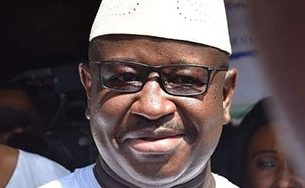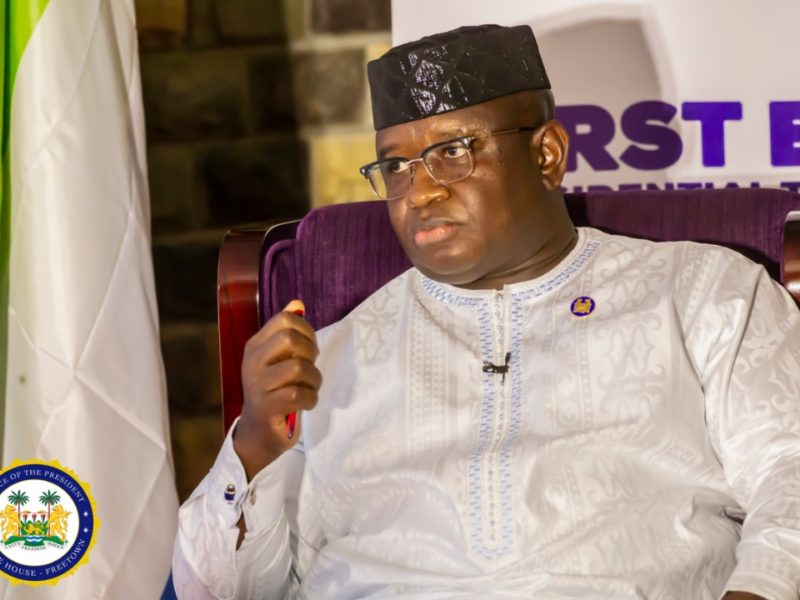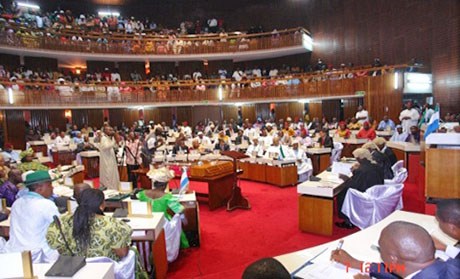Ministers, reshuffling and the way forward
It’s 8:00 a.m. on a Saturday morning and I am awakened by a phone call. Nothing bad about that, but it so happened that I had not gone to bed till 2:30 a.m. I was going to let the caller use my voicemail but gut instinct made me answer. The caller wanted me to know that there had been a cabinet reshuffle in Freetown, but did not have all details. I cursed under my breath but politely said thanks. I tried to go back to sleep but I had broken my sleeping rhythm. I was in Freetown for the last reshuffle and the timing was the same; it belonged to the President. The law simply states that choice of cabinet ministers is the call of one person and one person only. That person is the President of the Republic of Sierra Leone, hereafter referred to as Pa.
The conditions of service are very simple to comprehend: a) You serve as, when and where you are told, regardless of your ability to perform, at the will of the Pa. b) You are relieved of your position at the will of the Pa, regardless of what you may believe was your excellent performance. When I look at the position of Ministers of Cabinet in GoSL I find it very interesting for someone to accept a job in which you could be fired at 2:00 am in the morning, after attending government events the day, and evening, prior. It seems like a very insecure job, but then again I have not tasted the power and privilege that goes with such a job. I must admit I have never had uniformed, and plain clothes, police escorts, who will hold the only elevator in the building on my behalf while I chat away about whatever.
Rather unfortunately there is no system in the country by which citizens can come through the ranks, to display their talent at community involvement. At best community organizers are either thugs or thug commanders who can get their “people” to terrorize the other parties. Very seldom are there party members who are sent out to preach party policies and aspirations. In Sierra Leone party loyalty/affiliation comes through tribe or kinship, very rarely on an evaluation of the party’s position on issues. When you have 70% of the population illiterate then it becomes harder to formulate meaningful debate. This makes it very difficult for the young to get involved in a meaningful way, other than become party enforcers. Lately it has been the very ex-combatant rebels who killed and maimed innocent civilians that are used for enforcement. I do believe that both sides of the political aisle are guilty of this.
Age barrier: Somehow there is a cultural thing about age and wisdom in Africa, and Sierra Leone in particular. Very little opportunity is given to young people to participate in the thought process of governance. Adults under the age of 45 are rarely given the time of day to showcase their ideas, in the world of politics. By the time the individual is considered ready to be a part of the process (50 and up) most people are old and intransigent. There is also, by then, a feeling of having the position because one has paid his/her dues, not because of the individual’s ability. If you cannot show leadership qualities from youth and have to wait till 45, then you have not had any time to hone your skills and build up a track record. When have we had a President who came from the ranks of City Counselor, Mayor, Chiefdom Counselor etc. to President. This deference to age is a big reason why there is a recycling of old, and middle aged, personnel in the halls of power. For the most part these are people with questionable backgrounds who are tough enough to present themselves, even with the baggage they carry. Part of the reason is because, in our violence ridden political structure, winning an election means a certain amount of physical toughness, and brutality, is used to either make sure the opposition does not stand in the way of the incumbents rigging tactics, or the opposition has to counter with their own form of violent behavior. In the end certain levels of physical intimidation, or outright violence, have been displayed. Once again I do believe that our two major, and some minor, parties, are capable of inciting and orchestrating, violence.
If a survey is done starting from when Sierra Leone started using non-parliamentary personnel for the post of Cabinet Ministers, one sees people who hardly had any public sector experience been thrust into positions that meant dealing with a public entity. Hardly any of the present, and past, Ministers during this time frame had any community involvement, or managerial skills, in that domain. These people may be sharp individuals in their own right but the conditions they face(d) as Ministers were/are an order of magnitude removed, from what they were accustomed to.
Civil Servants: It is interesting that some of the people who may be really qualified for the post of Ministers, as managers, are actually civil servants. They, at least should, have some semblance of knowledge of how government works, and will therefore need much less time to get acclimatized with their surroundings. Presently the Ministers are just thrown into any position, in a manner that smacks of playful patronage. A doctor is put in the ministry of fruit selling, a lawyer controls the ministry of halleluiah etc. etc. No rhyme or reason. At the start of every administrative cycle, the president will go to length to provide the best “paper” qualified candidates for some top positions. After the first reshuffle, qualifications leave the building and the game of musical chairs kicks in. I have always wondered why, if Minister A was so qualified for position A, why is he/she reshuffled. If the Minister could not pull his/her weight, in the opinion of Pa, then replace him, or her, when the confidence level drops and take time to scout a replacement. I have never known what a reshuffle achieves. I do believe that the workers in the ministries are just as affected psychologically, by reshuffles as the people (Ministers) who are moved around. Such action is very bad for morale. Now the new minister has to learn a whole new set of rules, regulations and “masmas” (bribery and corruption) procedures. The problem of ministers would not have been so profound had it not been for the fact that every little action in the ministry has to be verified by “Ministah”. How much time does one have in a day to sign off on toilet tissue purchase?
Members of Parliament: After the British slightly eased off on their colonial leashes in 1961, my memory tells me that Ministers were selected from Members of Parliament. I long for the day when we (Sierra Leone) can return to that formula for the pool of Ministers. It tells me that this person (Minister) who has been called upon, has indicated a willingness to work with some kind of constituency of Sierra Leonean humans and was able to defeat challengers in the process. At some point in the ‘70’s when the “expatriate” minister surfaced in our midst, the explanation was that limiting to the set of people in Parliament meant limiting the choice of people who could serve. I vehemently opposed that view and I think that the fact that, to date, we have had very few ministers who have really made a mark, any mark at all, for the right reasons, shows that I may not have been wrong. It is indeed difficult to say that Ministers did not make a mark when the country was collectively sinking. If we can go back to giving civil servants the power they need and the flexibility and independence they deserve, we will then have Ministers who should be the oversees they were supposed to be, and not the administrators they have become. One of the sad things I see is how parliament has slowly become a school for the deaf and mute. One reasoning for not using MP’s was that they will have to run elections each time someone is called higher. My response is: What does NEC do when they are not conducting general elections once every five years?
Way Forward: The progress of most African nations rest on the folks that are 30 years old or less. This is the age that they should start running for office, if they are to effect change. They can use strength in numbers and grass roots strategy. Waiting for any “experienced” 50 year old “youth” is a big mistake. The logic is simple. At the age of 30 the corruption mentality is not yet deeply rooted and can be reversed/altered. Let us take the example of the college graduate. He/she graduates at age 25. At age 45 the individual has spent twenty years in a system steeped in corruption and personal greed. The individual is now eyeing retirement and so does not want the status quo to change. By status quo I mean the corruption regime, not party politics. I believe the picture is painted. Everyone knows that party politics is just a joke for the gullible.
Maada Moseray
Stay with Sierra Express Media, for your trusted place in news!
© 2011, https:. All rights reserved.






